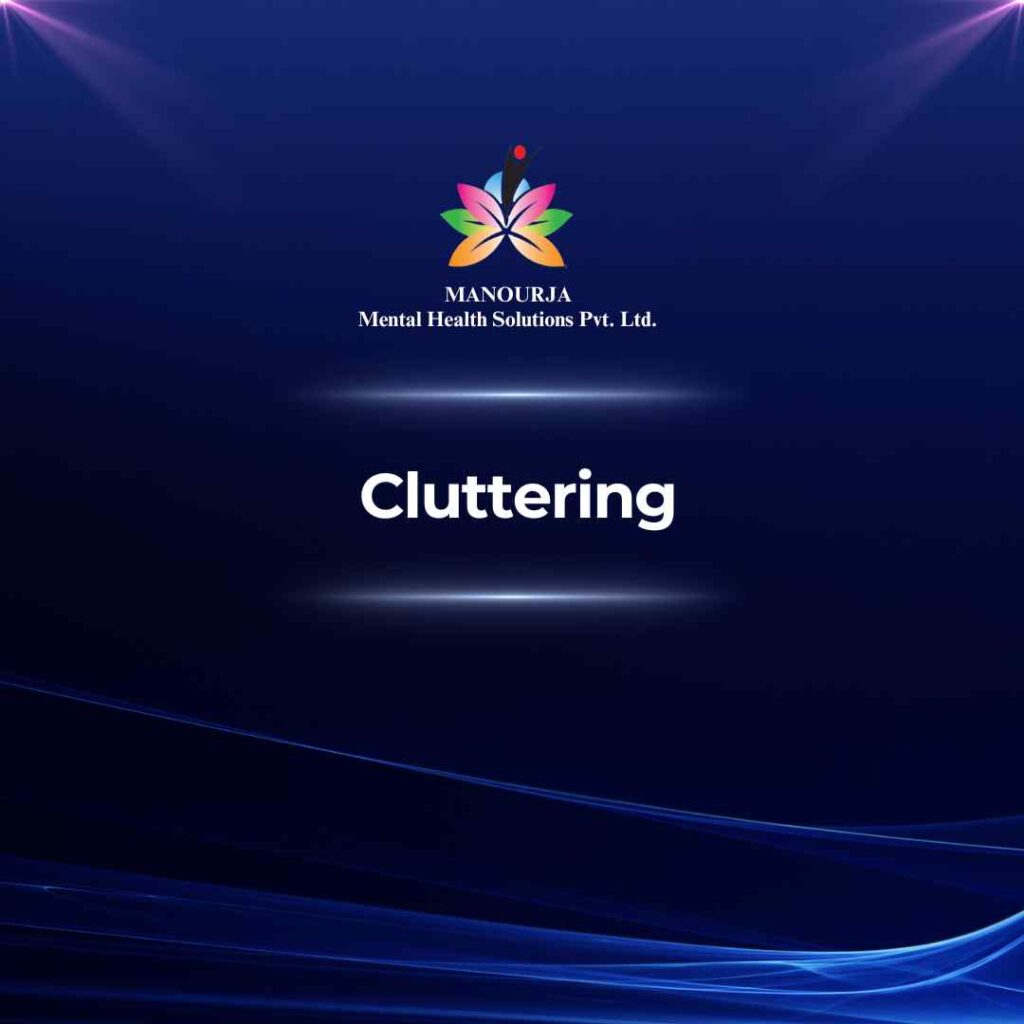Cluttering

Cluttering is a fluency disorder characterized by a rapid and/or irregular speaking rate, increased disfluencies, and often a lack of awareness of the disorder by the person speaking. Unlike stuttering, where disfluencies are typically predictable and involve repetitions or prolongations of sounds, cluttering is more about the flow and organization of speech. It results in speech that can be difficult to understand due to its hurried and disorganized nature.
Symptoms of Cluttering
- Rapid Rate of Speech: One of the most noticeable characteristics of cluttering is a fast speech rate. Individuals may speak unusually quickly, which can compromise their articulation and make their speech difficult to understand.
- Erratic Rhythm: Speech may have an irregular rhythm with abrupt shifts in pace or unfinished sentences.
- Excessive Disfluencies: These include filler words or interjections, revisions, and phrase repetitions. However, these are not the typical repeated sounds or syllables seen in stuttering.
- Poor Syntax and Grammar: Individuals with cluttering often exhibit disorganized speech structure, which can result in jumbled syntax and poor grammar.
- Lack of Awareness: People who clutter are often unaware of their speech disorder, unlike those who stutter, who are typically very conscious of their speech difficulties.
Forms of Cluttering
Cluttering is primarily considered as a single disorder but can vary in its manifestation. It is frequently found to co-occur with other communication disorders, including:
- Stuttering: Many individuals have both cluttering and stuttering, which can complicate diagnosis and treatment because the symptoms may overlap.
- Language Disorders: People with cluttering may also have difficulties with language organization, affecting their ability to construct coherent spoken and written language.
- Attention Deficit Hyperactivity Disorder (ADHD): There is some overlap between cluttering and ADHD, particularly due to symptoms like rapid speech and erratic attention, which are common in both disorders.
Treatment of Cluttering
Effective treatment for cluttering often involves a multifaceted approach tailored to the individual’s specific needs:
- Speech Therapy: The cornerstone of treating cluttering is speech-language therapy. A speech therapist can help individuals slow down their speech rate, improve their articulation, and organize their thoughts more coherently before speaking.
- Cognitive Behavioral Techniques: These can be used to increase self-awareness of speech patterns and develop strategies to manage and modify them.
- Pacing Techniques: Using visual aids or pacing boards to control the rate of speech can be effective. Some therapists use metronomes or tapping techniques to help establish a more regular speech rhythm.
- Practice and Feedback: Structured practice sessions involving reading aloud or conversing can help individuals gain greater control over their speech. Immediate feedback from therapists or communication partners is crucial.
- Educational Workshops: Educating individuals about cluttering and its impact on communication can increase their motivation to engage in treatment and apply communication strategies.
The key to successfully managing cluttering is early detection and intervention. With appropriate speech therapy and support, individuals can improve their speech fluency and communication effectiveness, enhancing their ability to participate in daily activities and professional interactions.
At MANOURJA, we believe in the transformative power of counseling. Our experienced therapists offer a safe and supportive space where you can explore your thoughts, emotions, and challenges. Through personalized counselling sessions, we’ll work together to develop coping strategies, build resilience, and achieve lasting positive change. Discover the path to a healthier, happier you with MANOURJA counselling services.
MANOURJA Rehabilitation Services
At MANOURJA, we’re dedicated to helping you in rebuild your life, after difficult times. Our rehabilitation services focus on understanding what you need to move forward, whether you’re recovering from addiction, trauma, or any psychological – social challenges. We create personalized plans, that are all about helping you, regain your strength and find hope again. With a caring team by your side, you’ll have the support to make real progress and take steps toward a brighter, healthier future.
